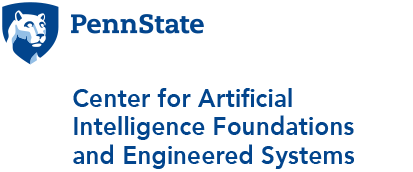Douglas Werner
Douglas H. Werner received the B.S., M.S., and Ph.D. degrees in electrical engineering and the M.A. degree in mathematics from the Pennsylvania State University (Penn State), University Park, in 1983, 1985, 1989, and 1986, respectively. He holds the John L. and Genevieve H. McCainChair Professorship in the Pennsylvania State University Department of Electrical Engineering. He is the director of the Computational Electromagnetics and Antennas Research Lab (CEARL: cearl.ee.psu.edu) as well as a faculty member of the Materials Research Institute (MRI: mri.psu.edu) at Penn State. Prof. Werner was presented with the 1993 Applied Computational Electromagnetics Society (ACES) Best Paper Award and was also the recipient of a 1993 International Union of Radio Science (URSI) Young Scientist Award. In 1994, Prof. Werner received the Pennsylvania State University Applied Research Laboratory Outstanding Publication Award. He was a co-author (with one of his graduate students) of a paper published in the IEEE Transactions on Antennas and Propagation which received the 2006 R. W. P. King Award. He received the inaugural IEEE Antennas and Propagation Society Edward E. Altshuler Prize Paper Award and the Harold A. Wheeler Applications Prize Paper Award in 2011 and 2014 respectively. In 2018, he received the DoD Ordnance Technology Consortium (DOTC) Outstanding Technical Achievement Award.He also received the 2015 ACES Technical Achievement Award,the 2019 ACES Computational Electromagnetics Award, and the IEEE Antennas and Propagation Society 2019 Chen-To Tai Distinguished Educator Award. He was the recipient of a College of Engineering PSES Outstanding Research Award and Outstanding Teaching Award in March 2000 and March 2002, respectively. He was also presented with an IEEE Central Pennsylvania Section Millennium Medal. In March 2009, he received the PSES Premier Research Award. He is a Fellow of the IEEE, the IET, the OSA, the ACES, and the PIER Electromagnetics Academy. He is also a Senior Member of the National Academy of Inventors (NAI), SPIE, and URSI.
Prof. Werner is a former Associate Editor of Radio Science, a former Editor of the IEEE Antennas and Propagation Magazine, a former Editorial Board Member of Scientific Reports (a Nature subjournal), an Editorial Board Member for EPJ Applied Metamaterials, Editor for the IEEE Press Series on Electromagnetic Wave Theory & Applications, a member of URSI Commissions B and G, Eta Kappa Nu, Tau Beta Pi and Sigma Xi. He holds 20 patents, has published over 900 technical papers and proceedings articles, and is the author of 6 books and 35 book chapters (with one book and several additional chapters currently in preparation).
His research interests include computational electromagnetics (MoM, FEM, FEBI, FDTD, DGTD, CBFM, RCWA, GO, GTD/UTD, etc.), antenna theory and design, phased arrays (including ultra-wideband arrays), high power microwave devices, wireless and personal communication systems (including on-body networks), wearable and e-textile antennas, RFID tag antennas, conformal antennas, reconfigurable antennas, frequency selective surfaces, electromagnetic wave interactions with complex media, metamaterials, electromagnetic bandgap materials, zero and negative index materials, transformation optics, nanoscale electromagnetics (including nanoantennas), fractal and knot electrodynamics, neural networks and deep learning as well as nature-inspired optimization techniques (genetic algorithms, clonal selection algorithms, particle swarm, wind driven optimization, and various other evolutionary programming schemes).
He currently has an active research effort devoted to exploiting Artificial Intelligence (AI) and Deep Learning (DL) for solving complex electromagnetics/optics problems, including the development of rapid simulation and inverse-design techniques.

Douglas Werner
John L. and Genevieve H. McCain Chair Professor of Electrical Engineering


